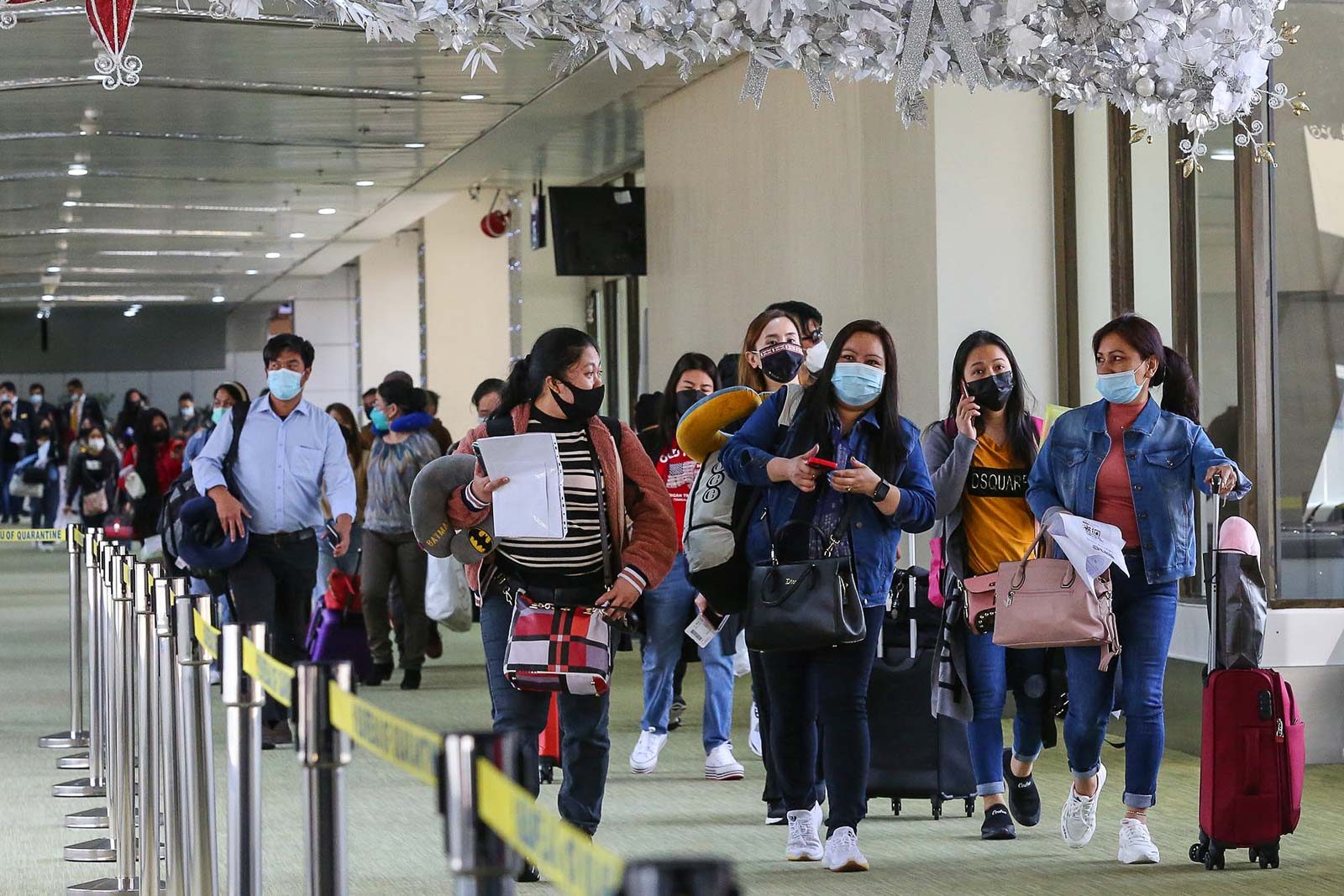SUMMARY
This is AI generated summarization, which may have errors. For context, always refer to the full article.

MANILA, Philippines – Overseas Filipino remittances hit a new all-time high in 2022 as families back in the Philippines struggled with rising prices.
The Bangko Sentral ng Pilipinas (BSP) on Wednesday, February 15, said personal cash remittances grew 3.6% to $36.14 billion in 2022. This accounted for 8.9% of the Philippines’ gross domestic product.
“The robust inward remittances reflected the increasing demand for foreign workers amid the reopening of economies,” the BSP said.
Of the personal remittances, cash remittances coursed through banks reached $32.5 billion, a 3.6% increase.
Growth in cash remittances from the United States, Saudi Arabia, Singapore, Qatar, and the United Kingdom contributed largely to the increase. The US posted the highest share of overall remittances at 41.2%, followed by Singapore (7%) and Saudi Arabia (6%).
Rizal Commercial Banking Corporation chief economist Michael Ricafort noted that the higher growth was also partly due to the stronger dollar. In end-December 2022, the peso traded at P55.75 against the dollar, 9.3% higher from 2021.
Meanwhile, inflation in December 2022 climbed to 8.1%.
Risks
ING Bank Manila senior economist Nicholas Mapa said Filipinos abroad sent home funds to help shoulder fixed peso purchases, which were mostly food and basic needs.
“This year, we can expect remittances to sustain growth as overseas Filipinos help offset what is now turning into a cost-of-living crisis in the Philippines, although gains could be capped as growth is expected to slow in the developed world,” Mapa said.
Ricafort also noted that the risk of recession in the United States might reduce overseas Filipinos’ income.
Ricafort added that a recession in the US could slow down global growth, trade, investments, and jobs. – Rappler.com
Add a comment
How does this make you feel?
![[EDITORIAL] Apat na taon na lang Ginoong Marcos, ‘di na puwede ang papetiks-petiks](https://www.rappler.com/tachyon/2024/07/animated-bongbong-marcos-2024-sona-day-carousel.jpg?resize=257%2C257&crop=280px%2C0px%2C720px%2C720px)
![[In This Economy] Delulunomics: Kailan magiging upper-middle income country ang Pilipinas?](https://www.rappler.com/tachyon/2024/07/in-this-economy-upper-middle-income-country.jpg?resize=257%2C257&crop=421px%2C0px%2C1080px%2C1080px)

![[EDITORIAL] Marcos Year 2: Hilong-talilong](https://www.rappler.com/tachyon/2024/07/animated-bongbong-marcos-2nd-sona-carousel.jpg?resize=257%2C257&crop=136px%2C0px%2C720px%2C720px)
![[Newspoint] A fighting presence](https://www.rappler.com/tachyon/2024/07/thought-leaders-a-fighting-presence.jpg?resize=257%2C257&crop=441px%2C0px%2C1080px%2C1080px)
There are no comments yet. Add your comment to start the conversation.